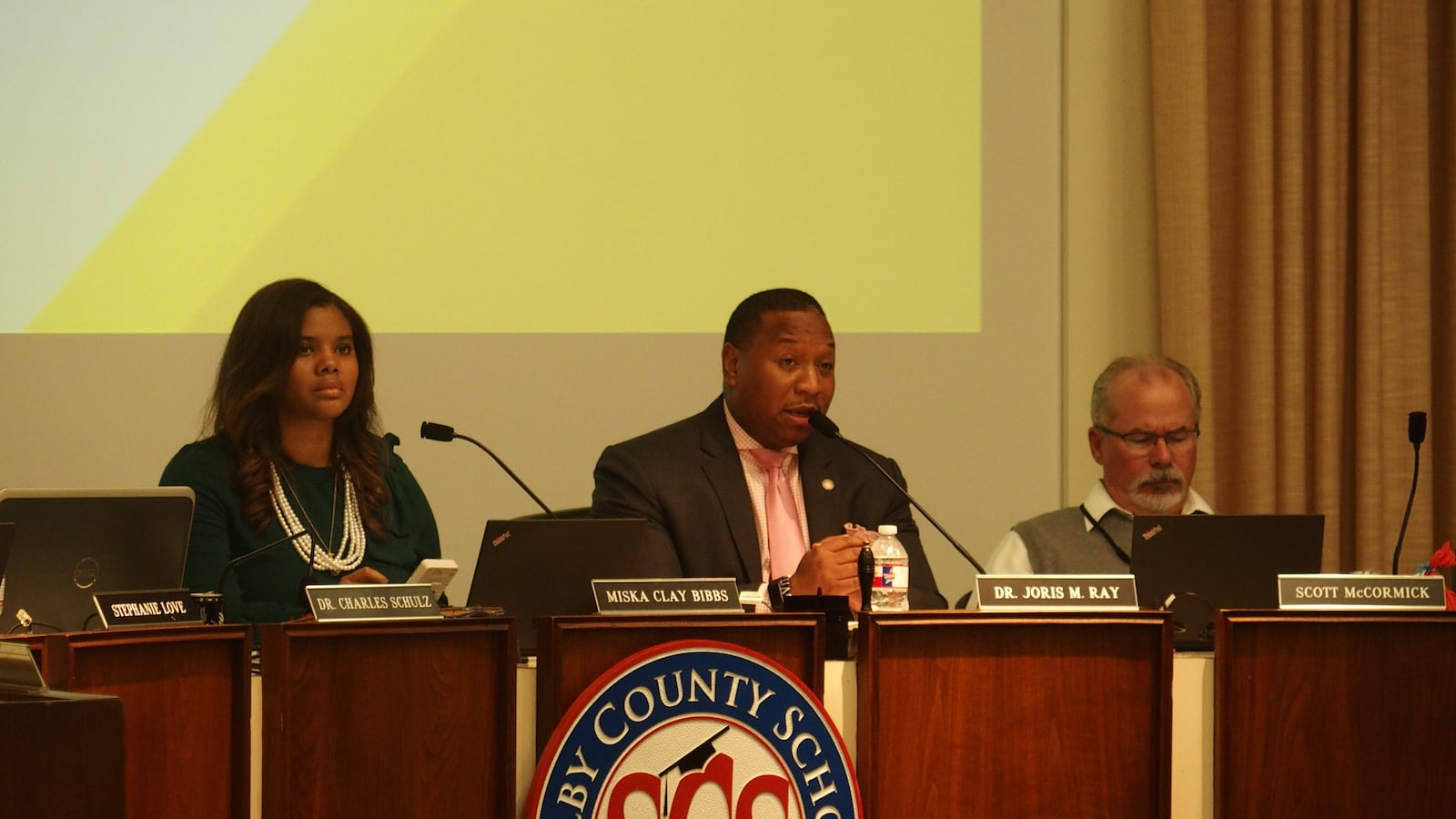School board members don’t want to see any more charter schools open or expand in Memphis until the state evaluates how they are doing.
The Shelby County Schools board included that request to state lawmakers in its annual legislative agenda approved Tuesday. The requests don’t necessarily translate to action, but Memphis legislators especially pay attention to them. The district uses the agenda to prioritize issues that it wants state legislators to address during their monthslong session that begins next month.
This year’s agenda includes 13 requests, six of which are related to charter schools, but the school board could add more. Many are repeat petitions, such as opposing private school vouchers and calling for more clarity on how schools in the state-run Achievement School District will return to local control. Several requests respond to new state laws such as stricter teacher background checks and tests to mitigate lead exposure in school water.
The charter moratorium calls for the state’s research entity, the Tennessee Advisory Commission on Intergovernmental Relations, or TACIR, to study charter schools’ effectiveness.
“A moratorium on the expansion of charter schools is not intended to eliminate public charter schools in Tennessee but will provide an opportunity to evaluate the overall effectiveness of charter schools on student outcomes and strengthen educational opportunities for all students,” the board’s agenda reads.

That’s in line with the board’s recent attempts to slow the growth of charter schools in Memphis through policy that encourages denying charter schools opening in neighborhoods “saturated” with other schools.
But the board has faced opposition from state officials who say the district’s criteria for approving new charter schools is too strict.
Charters have provoked fierce debate and divisions. When the NAACP called for a charter moratorium three years ago, the Tennessee chapter distanced itself from the stance, naming Memphis “a progressive spot” for charter schools.
Terence Patterson, who was recently appointed to the state’s forthcoming charter commission to referee issues between charter schools and local districts, called the school board’s stance “unnecessary” in a statement released Wednesday.
“Sufficient national and local data already exists to inform the district’s decision-making,” said Patterson, who is also the the CEO of philanthropy Memphis Education Fund. (Memphis Education Fund supports Chalkbeat.)
“All schools must be held equally accountable, but blanket moratoriums that prevent high-quality public charter schools from opening or expanding only serve to limit student opportunities and parents’ choices,” Patterson said in the statement.
Charter schools, which are privately managed by nonprofit organizations but publicly funded, have been in Tennessee for 16 years. Shelby County Schools oversees 57, just more than half of charter schools in the state.
According to the district’s annual report on its charter sector, district-run elementary schools tend to perform better than charter schools. However, high schools run by charter operators often score higher on state tests compared with district-run ones.
Below are the Shelby County Schools board’s legislative priorities for the 2020 Tennessee General Assembly:
The school board opposes:
- Any legislation that will result in cuts to or elimination of state pre-kindergarten funding.
- Unfunded and underfunded mandates. The board urges the Tennessee General Assembly to conduct a study to determine all state-imposed mandates on local education agencies (LEAs) and the fiscal impact such mandates have on the Tennessee public education system.
- Implementation of the Education Savings Accounts (ESAs) Act and any other legislation aimed at instituting a voucher program for public education.
On various issues, the Shelby County Board of Education urges the Tennessee General Assembly:
Charter Schools
- To allow the State Board of Education to retain duties as the state’s appellate public charter school authorizer instead of assigning such duties to the Public Charter School Commission.
- To establish an authorizing fee structure that is identical for all charter school authorizers.
- To strengthen the ability of authorizers to support and enforce the compliance of charter schools under its authority, and when necessary, assess fines for noncompliance.
- To outline provisions by which a school removed from an LEA [local district] and placed in the [state-run] Achievement School District may return to the LEA prior to the time frame set forth under [state law] T.C.A. §49-1-614.
- To provide additional funding for capital improvements to public non-charter schools.
- To place a moratorium on the expansion of charter schools (new applications for charter schools and applications for expansion of existing charters) until a study and evaluation of the effectiveness of charter schools operating under the Tennessee Public Charter Schools Act is conducted by the Tennessee Advisory Commission on Intergovernmental Relations (TACIR).
Background checks
- To allow local education agencies (LEAs) flexibility in determining the suitability and fitness of individuals subject to criminal history record checks by granting time consideration for specific enumerated offenses.
Students and academics
- To remove the statutory requirement to place students in grades seven through 12 receiving a short-term suspension, less than 10 days, in an alternative school or alternative program.
- To provide supports and funding to assist local education agencies (LEAs) in adopting and implementing trauma-informed practices.
- To require the Department of Environment and Conservation to adopt a statewide plan to reduce public exposure to lead in drinking water sources and to prioritize funding to assist in the remediation of elevated lead levels in drinking water in Tennessee public schools.
This story has been updated with comments from Terence Patterson.

